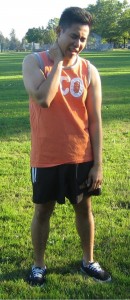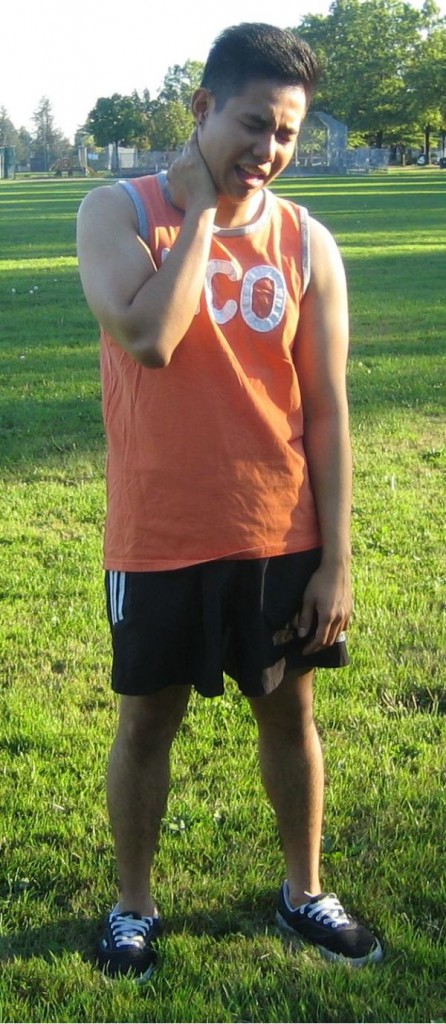Neck pain while performing bench press might be due to using heavy weights or if the weight used is not pressed using even and smooth movement. Bench press involves upper body strength to lift heavy weights such as the shoulder, chest and lower neck muscles. The abrupt movements worsened by extreme pressure from the heavy weights typically trigger neck pain from muscle sprains.
Close look on the neck muscles
When an individual experiences neck pain from bench pressing, it is usually due to the strain on the sternocleidomastoid which are 2 muscles starting from the ear down to the neck up the collarbone and sternum.
The sternocleidomastoid works hand in hand with the shoulder and chest muscles to help with head movements such as turning the head from side to side and nodding. Since it is linked to the chest muscles required to lift weights while lying flat, bench pressing can easily damage this muscle.

What are the symptoms?
Once the sternocleidomastoid is damaged, it can become swollen or inflamed around the area it was sprained or torn. The neck pain occurs along with head movement especially when tilted or turned.
In severe cases, bruising can develop which is evident as light discoloration. If muscle spasms occur, there is minimal twitching motion that can be observed as well. Difficulty holding the head and stiffness can also occur. On the other hand, it is best to obtain a proper diagnosis since neck pain is also present in whiplash, neuromuscular diseases and other similar health issues.
Management of neck pain
The swelling and neck pain can be relieved by applying an ice pack on the sore area. The individual must avoid weight training specifically bench pressing or other activities that involves the shoulder, chest and neck muscles.
In severe cases, using a neck brace can help reduce the pain by taking the pressure of supporting the head off the neck muscles. Non-steroidal anti-inflammatory drugs (NSAIDs) or rubbing creams that contain analgesics are recommended as well. Additionally, using a small pillow or rolled towel behind the neck can relieve the neck pain while sleeping.
Always bear in mind that most cases of sprains involving the sternocleidomastoid can heal within 1-2 weeks as long as the muscles are allowed to rest from any physical activity. Nevertheless, if numbness or tingling sensations radiate into the shoulder or muscle stiffness worsens to a point in which movement is impossible, a doctor should be consulted as soon as possible.
Preventive measures
Mild stretching exercises can help strengthen the neck muscles. Proper posture must be observed to avoid any strain on the neck muscles from being hunched over. In addition, while performing bench press, always make sure that the head remains flat on the bench. Injuries to the neck muscles typically occur when the head lifts off the bench and the neck muscles are contracted.

